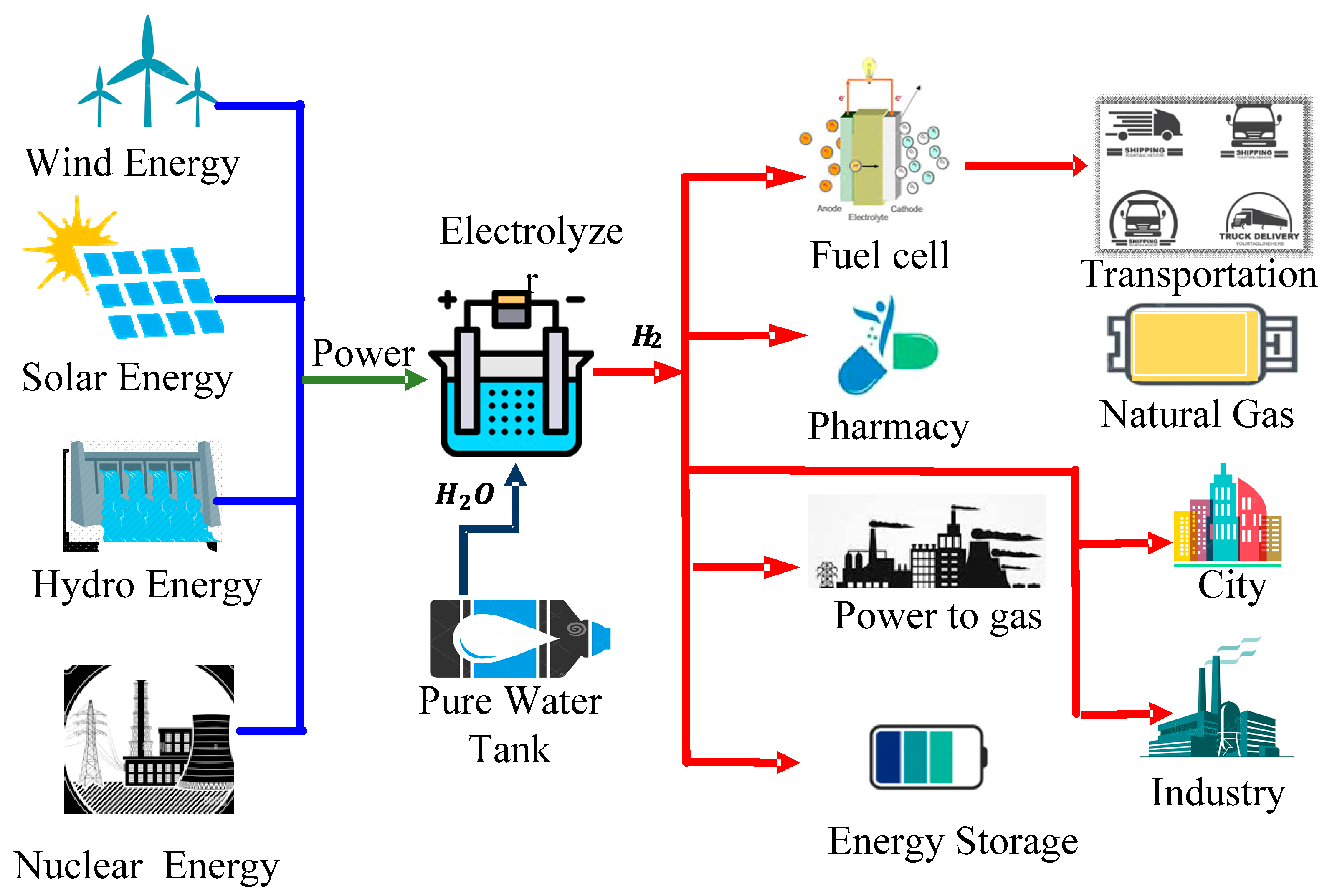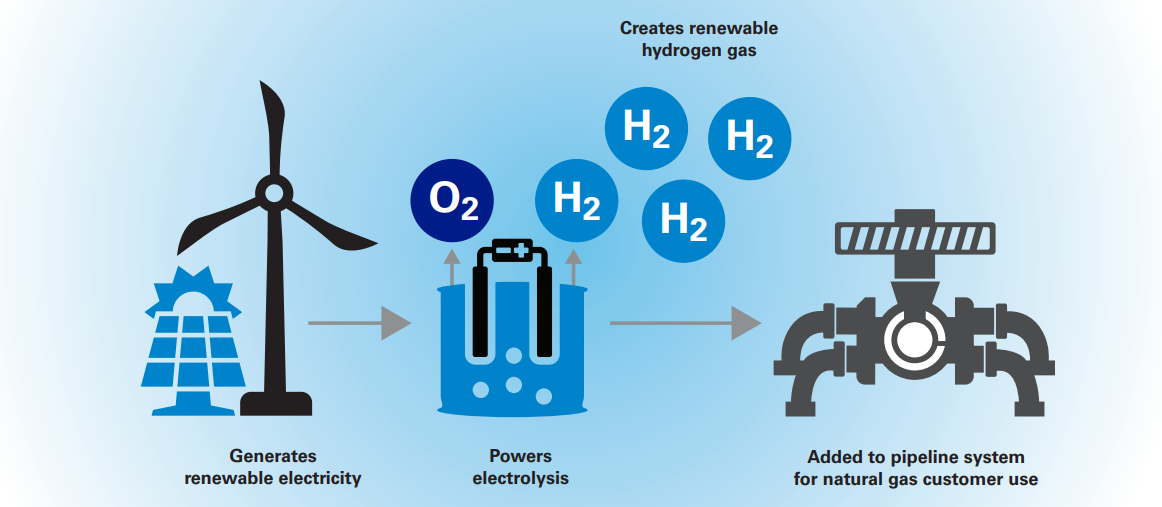Overall Concept Of A Hydrogen Renewable Energy System For Distributed

Energies Free Full Text A Review On Hydrogen Based Hybrid Microgrid This paper presents an overview of distributed hydrogen systems (dhs) based on a literature review of 159 scientific publications. research has grown exponentially since 2020, but the limited application in the global south necessitates a broader spatial investigation. power to hydrogen and green hydrogen concepts are found to be prevalent in. Distributed energy systems are fundamentally characterized by locating energy production systems closer to the point of use. des can be used in both grid connected and off grid setups. in the former case, as shown in fig. 1 (a), des can be used as a supplementary measure to the existing centralized energy system through a bidirectional power.

Renewable Hydrogen This paper is devoted to treating hydrogen powered energy systems as a whole and analysing the role of hydrogen in the energy systems. as hydrogen has become an important intermediary for the energy transition and it can be produced from renewable energy sources, re electrified to provide electricity and heat, as well as stored for future use. Distributed energy system, a decentralized low carbon energy system arranged at the customer side, is characterized by multi energy complementarity, multi energy flow synergy, multi process coupling, and multi temporal scales (n m characteristics). this review provides a systematic and comprehensive summary and presents the current research on distributed energy systems in three dimensions. Because of that, recognising the context is one the pillars towards creating a distributed renewable energy system. the renewable energy sources are the following: sun, wind, water, biomass and geothermal energy. an explanation of the main resources is provided in the next paragraphs. 3.1 solar energy. Earthshot (hydrogen shot) through targeted hydrogen and fuel cell system integration and demonstration activities. to achieve this mission, the sdi subprogram focuses on: • identifying hydrogen applications and system configurations that can provide affordable and reliable clean energy. • validating and testing first of a kind integrated.

Why Hydrogen Could Be The Future Of Green Energy World Economic Forum Because of that, recognising the context is one the pillars towards creating a distributed renewable energy system. the renewable energy sources are the following: sun, wind, water, biomass and geothermal energy. an explanation of the main resources is provided in the next paragraphs. 3.1 solar energy. Earthshot (hydrogen shot) through targeted hydrogen and fuel cell system integration and demonstration activities. to achieve this mission, the sdi subprogram focuses on: • identifying hydrogen applications and system configurations that can provide affordable and reliable clean energy. • validating and testing first of a kind integrated. Nasser et al. evaluate a renewable energy based hydrogen production system using solar and wind. the hybrid system is analyzed for energy, exergy, economics, and environmental aspects. it incorporates pv panels, wind turbines, and a water electrolyzer. the system achieves an overall energy efficiency of 16.42% and an exergy efficiency of 12.76%. Electrolyzed water hydrogen production technology can adapt to the discontinuous and unstable power supply defects of renewable energy power generation systems such as wind solar water, reduce the cost of hydrogen production by electrolytic water, extend the service life, and promote the economic development of distributed energy (rashid et al.

Development Of Renewable Energy Multi Energy Complementary Hydrogen Nasser et al. evaluate a renewable energy based hydrogen production system using solar and wind. the hybrid system is analyzed for energy, exergy, economics, and environmental aspects. it incorporates pv panels, wind turbines, and a water electrolyzer. the system achieves an overall energy efficiency of 16.42% and an exergy efficiency of 12.76%. Electrolyzed water hydrogen production technology can adapt to the discontinuous and unstable power supply defects of renewable energy power generation systems such as wind solar water, reduce the cost of hydrogen production by electrolytic water, extend the service life, and promote the economic development of distributed energy (rashid et al.

Comments are closed.